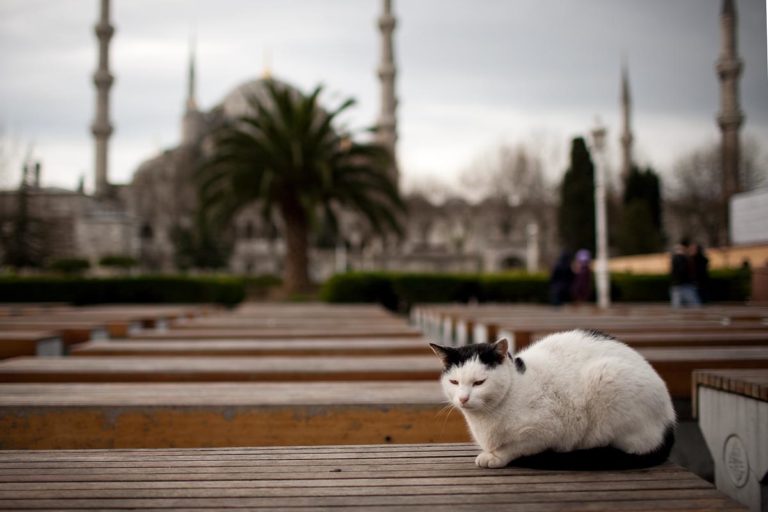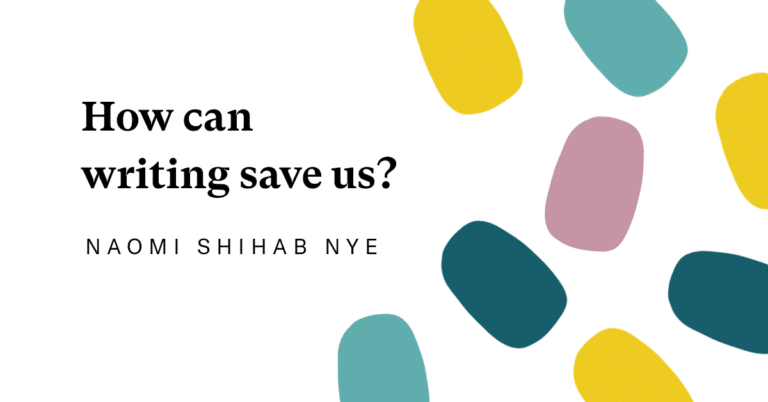
Image by Luca Moglia.
Cats in Mosques, Seeds on the Ground: The Inner Mosque of the Human Heart
Winter is coming.
Winter is coming.
No, it is not about Game of Thrones. It’s the real winter. And it’s coming.
Winter to me is special. It means snow falling in that enchanting, silent way. Snow reminds me of God’s grace, covering all in a way reminiscent of God’s mercy.
There are two touching stories this week about kindness in the wintertime. Stories of human beings reaching out in simple acts of compassion that affirm my faith in kindness.
The first story is about the new imam (minister, prayer leader) of the Aziz Mahmud Hüdayi Mosque in the Üsküdar neighborhood of Istanbul. The mosque is named after a famed Sufi saint, Aziz Mahmud Hüdayi.
Many foreign travelers to Istanbul note how pet-friendly the city is. Many shops have kittens, whose overpowering cuteness helps to bring in tourists. These “cuteness traps” are part of the whole experience of visiting, living, and shopping in Istanbul. Even some of the historical monuments have their own cats, such as the famed cat of Hagia Sophia, so famous it has its own Tumblr account and Buzzfeed report.

The imam of the Aziz Mahmud Hüdayi mosque noted that winter was coming, and the stray cats of Istanbul had no place to go in the snowy winter. So he opened the door of his beautiful, carpeted mosque to the neighborhood cats so that they could come into the mosque during the cold wintertime. This kind imam, Mustafa Efe, decided to do so not out of commitment to a Western notion of animal rights, but to fulfill his sense of what it means to be a devoted Muslim. He remembers, as do many Muslims, that the mercy of God is linked to the way that we treat God’s creation. These friends remember the legacy of the Prophet, having said:
“Be aware of God in your treatment of animals.”
The imam of the mosque shared these stories on his own social media account. The story seems to have caught on, and then some. There are now more stories on the way about this tender-hearted Muslim imam’s treatment of the cats than there are about the history of the mosque itself! Some of the videos of these cats have earned more than a million views. I looked at thousands of people sharing the stories of this imam online. (Of course, cats rule the internet.)

Winter is coming.
Winter is coming.
The story is not a solitary one. A few days ago I was reminded when a friend posted a note on social media about an old tradition in Ottoman societies (today’s Turkey, Palestine, Syria, Lebanon, Egypt, Bosnia, Greece, etc.). Whenever it snows, people go to the top of a mountain and scatter seeds for birds. The reason is as simple as it is immediate: birds are creatures of God. And as the Prophet said, if you want the All-Merciful God to show you mercy, show mercy to the creation of the All-Merciful.
A Palestinian friend of mine posted this story about this tradition of feeding birds, attributed back to the Muslim Caliph ‘Umar ibn ‘Abdul Aziz as following:
“Go and spread seeds on the tops of mountains —
may the birds not die of starvation in a Muslim country.”
May the cats not die of cold. May the birds not die of starvation.

This outpouring of compassion brought me back around to the very species showing kindness in this beautiful and generous way: human beings.
I thought of the millions of human refugees — in Turkey, in Lebanon, in Jordan, in Europe. Millions internally displaced in Syria. May the human homeless, the human poor, the human hungry, the human refugee not be neglected in any country.
Winter is coming.
Winter is coming.
No, I am not interested in pitting us humans against cats. This is not a zero-sum game of compassion for humanity vs. compassion for cats and birds. Our hearts are big enough.
We have enough seeds,
enough warmth,
enough kindness,
enough shelter,
for all of us.
I know that there is something in us that calls for direct, urgent compassion. We see the need, and want to meet the need.
So long as the urge to shelter that cat remains, something of humanity remains in us. So long as we scatter seeds on the snow for the birds, we remain worthy of the name human.
That desire is beautiful.
The compassion, divine.
And how divine to keep extending it, keep expanding it, ‘til no one, no group, no family, is left outside.

Again, the Prophet Muhammad said if we are not moved by the suffering of another, we are unworthy of the name human. The Persian poet Sa‘di took Muhammad’s saying and wrote it in the introduction of his masterful piece, the Golestan (Rose Garden):
Human beings are members of a whole,
In creation of one essence and soul.If one member is afflicted with pain,
Other members uneasy will remain.If you have no sympathy for human pain,
The name of human you cannot retain.
So, yes, friends… the real mosques that have to be opened up are not merely the ones in Istanbul, but the inner “mosques” of the human hearts. It is these mosques that have to be barged open, so that every creature shivering in the coldness of lacking in affection can find shelter inside.
Let us open the doors of our hearts, and take each other in.
Let’s cast the seeds of compassion
Here,
There,
Until every bird/spirit
Can find its sustenance.
Then we will usher in a new spring
Where love’s blossoms will flower.



Share your reflection